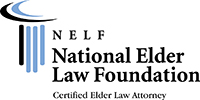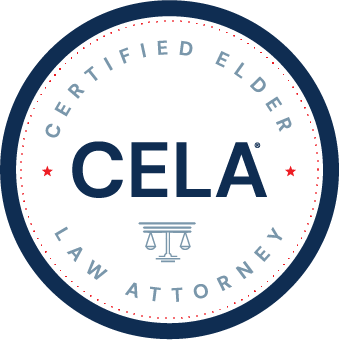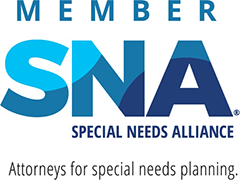The Law Offices of Bradley J. Frigon can help you protect your assets from the high cost of a nursing home or other long-term care expenses while providing security for your spouse and a legacy for your children.
Nursing Home costs
According to a study published by the New England Journal of Medicine, almost half of all Americans will spend some time in a nursing home. In Colorado, the average cost of a nursing home is approximately $9,000 per month. The national range is $8,000 - $15,000. per month.
Ways to pay for a nursing home
There are five ways to pay for a nursing home:
- Private pay
- Long-term care insurance
- Medicare
- Veterans benefits, and
- Medicaid
Only about 5% of Americans have long-term care insurance. Many individuals are uninsurable or cannot afford long-term care insurance. At most, Medicare pays part of 100 days of nursing home costs. Please review our article on how Veterans benefits can help pay for the cost of long-term care.
A Medicaid Plan
The major alternative to private pay is Medicaid. By carefully designing a thorough Medicaid plan, security can be ensured for the well spouse and a legacy can be preserved for children. Failure to design the right plan may jeopardize the financial security of the spouse. In some instances, the family home may have to be abandoned. The rules of eligibility for Medicaid are complex.
A Medicaid recipient is only allowed to retain $2,000 of countable assets. If the person is married, the well spouse (referred to as the Community Spouse under Medicaid rules) is allowed to retain a portion of the couple’s countable assets. For calendar year 2019 the Community Spouse is allowed to retain one-half of the countable assets with a maximum of $126,420.00.
Certain assets are not counted, such as a home (under certain circumstances), an automobile, personal effects, wedding and engagement rings, medical equipment, and certain types of burial funds. In a situation where there is a married couple, the assets of both the husband and wife are combined. This is true notwithstanding the fact that a prenuptial agreement may have been signed.
For Medicaid penalty purposes there is a 60 month look back for transfers. If the transfers are made to someone other than a spouse during the look back period, the Medicaid applicant may be disqualified from receiving Medicaid for a period of time. This is called a “penalty period”. The penalty period is calculated by dividing the fair market value of the transferred assets by the state divisor which is based on the average cost of a semi-private room in a nursing home in that state or region of that state. The penalty can be longer than 60 months or it can be shorter. Transfers made by either the Institutionalized Spouse or the Community Spouse to third parties are penalized. Transfers between spouses and transfers to certain disabled persons are exempt from Medicaid transfer penalty.
Tax considerations of Medicaid planning
Medicaid planning involves a number of tax considerations. These relate to income tax, gift tax, and, possibly, federal estate tax. Failure to comply with the tax law in designing a Medicaid plan can result in the payment of significant extra taxes.
Acting quickly is key
The key to Medicaid planning is to act quickly and to develop a plan customized to your specific situation. Failure to develop your own plan will cost you a considerable amount of money. If a nursing home cost is $8,000 per month, every month that you wait will cost you $8,000. It is possible to protect significant assets. In those cases where planning was not done and the person is already in a nursing home, assets can also be protected, but the earlier the planning is done, the more money is saved.
Conclusion
Attaining Medicaid eligibility requires careful planning with an emphasis on properly "timing" any transfers of assets. Clearly, this type of planning should not be undertaken without competent legal counsel. Contact the Law Offices of Bradley J. Frigon to learn how to protect your property from the high cost of nursing home expenses.
Learn more
Learn more by browsing our medicaid planning articles.
Call (720) 200-4025 now or email us to find out how our Medicaid Planning attorneys can help protect your assets from the high cost of nursing home or other long term care expenses.












